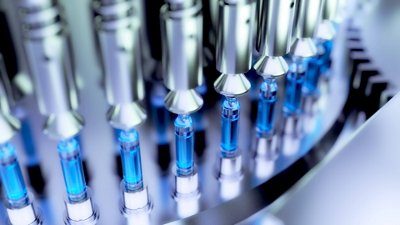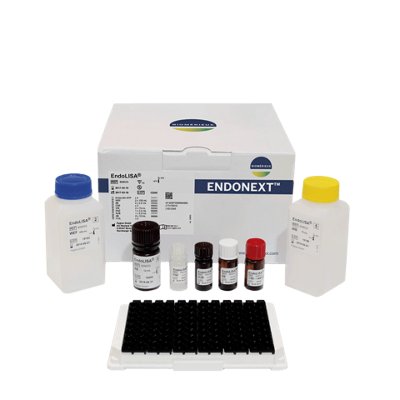Low Endotoxin Recovery
Assessment of PDA Technical Report No. 82 and Demasking of Endotoxin With Dedicated Sample Treatment
by Dr. Christian FADERL — September 25, 2019

The Parenteral Drug Association (PDA) has recently published Technical Report No. 82 (TR82) on the topic of Low Endotoxin Recovery (LER), providing both consensus to the science and data behind the analytical issue, as well as to analytical and mitigation strategies.
Here, Dr. Christian Faderl from bioMérieux, explains the important implications of TR82 as well as presenting the ENDO-RS® sample preparation technology for demasking endotoxin in affected biologics, as described in Case Study 7 of TR82.
ABOUT DR. CHRISTIAN FADERL
Christian currently serves as Project Coordinator for LER Projects and holds a PhD in Chemistry from the University of Regensburg. Prior to joining bioMérieux, Christian worked with quality management.
WHAT IS LOW ENDOTOXIN RECOVERY?
First reported by Chen and Vinther in 2013, the phenomenon known as Low Endotoxin recovery (LER) has been broadly studied and identified in biologics and certain therapeutic proteins.
LER is a temperature- and time-dependent process and defined as loss of detectable endotoxin activity over time when using Factor C-based assays (LAL and rFC) when undiluted products are spiked with known amount of endotoxin standards.
Regulatory authorities also request hold-time studies to determine the validity of the endotoxin release test methods during the review of BLAs for biotech products, as well as new methods to overcome the issue.
WHAT IS PDA TR82?
In March 2019, the Parenteral Drug Association (PDA) published TR82 on LER. The report constitutes a much needed source of information and guidance, including scientific findings on mechanism, data on clinical relevance, as well as recommended procedures for analysis and mitigation of endotoxin masking commonly leading to LER in biologics.
This comprehensive document is a result of three years intensive work by the PDA LER Task Force, which consists in members from U.S. FDA, academia, pharmaceutical industry and all endotoxin testing suppliers.
To read TR82 in full, it is available for members and can be purchased directly from the PDA Technical Reports Portal.
IN YOUR OPINION, WHAT ARE TR82’S BIGGEST TAKEAWAYS?
TR82 is an important scientific and guidance document that will allow pharmaceutical companies to leverage for the successful mitigation of the LER phenomenon, with the ultimate outcome of increased process and product knowledge.
Important takeaways of the report are:
- A description of the underlying mechanisms and contributing factors of LER,
- A summary of the potential clinical impact,
- Clear guidelines for conducting LER hold-time studies,
- And a choice of strategies for the mitigation of LER are made available for the industry.
“PDA TECHNICAL REPORT 82 HELPS PHARMA COMPANIES TO MITIGATE THE LER PHENOMENON.”
WHICH ARE THE OUTCOMES OF CASE STUDY 7, EVALUATION OF AN ENDOTOXIN DEMASKING PROTOCOL, IN TR82?
An important part of TR82 is the comprehensive appendix of case studies considering LER occurrences, encompassing both analyses of root-causes and endotoxin preparations, as well as methodologies for overcoming LER.
In one of the studies, Case Study 7: Evaluation of an Endotoxin Demasking Protocol, the application of the ENDO-RS method, developed by Hyglos - a bioMérieux company, was assessed. This study used a sample known to be affected by LER to evaluate a sample preparation protocol using ENDO-RS reagents prior to detection of endotoxin using the LAL method. The results showed that the ENDO-RS protocol was able to reliably detect the endotoxin under all conditions tested, ensuring robust recovery and diminishing the risk of false-negative test results.
WHAT IS THE ENDO-RS® METHOD?
The ENDO-RS method, is a patented set of reagents for sample preparation addressing masking of endotoxin in biopharmaceutical formulations typically containing surfactants, chelating agents or specific Active Pharmaceutical Ingredients (API). ENDO-RS enables full quantitative recovery of endotoxin prior to detection, independent of storage time and endotoxin concentration. bioMérieux provides specialized protocol development services applying ENDO-RS. Our work for leading pharmaceutical companies has resulted in validated methods for LER, fulfilling regulatory requirements.


